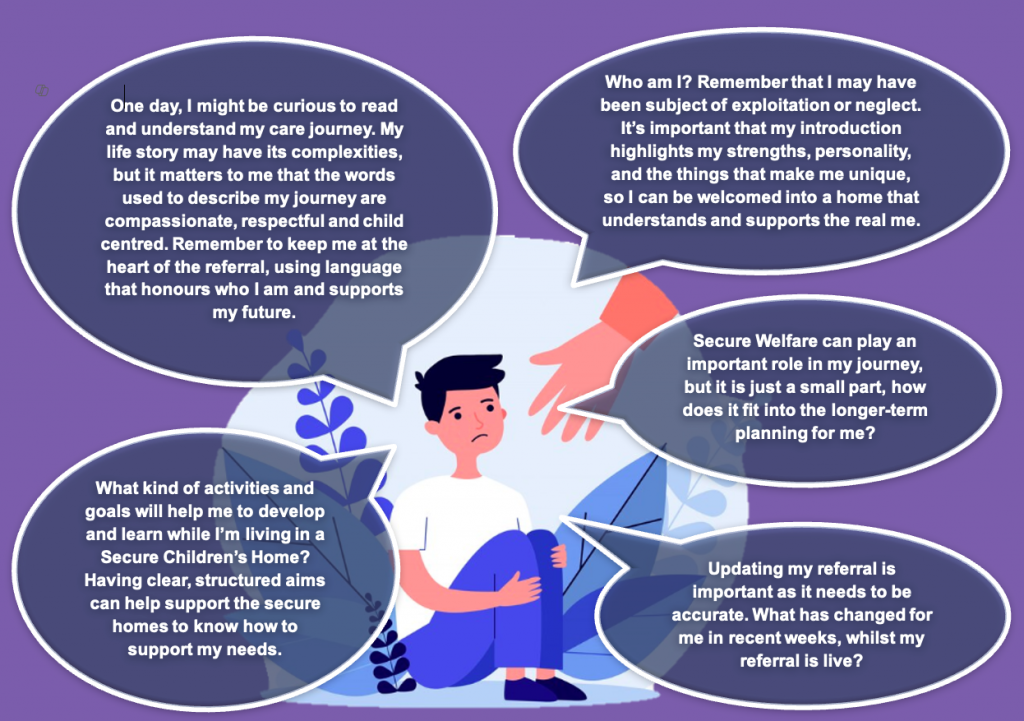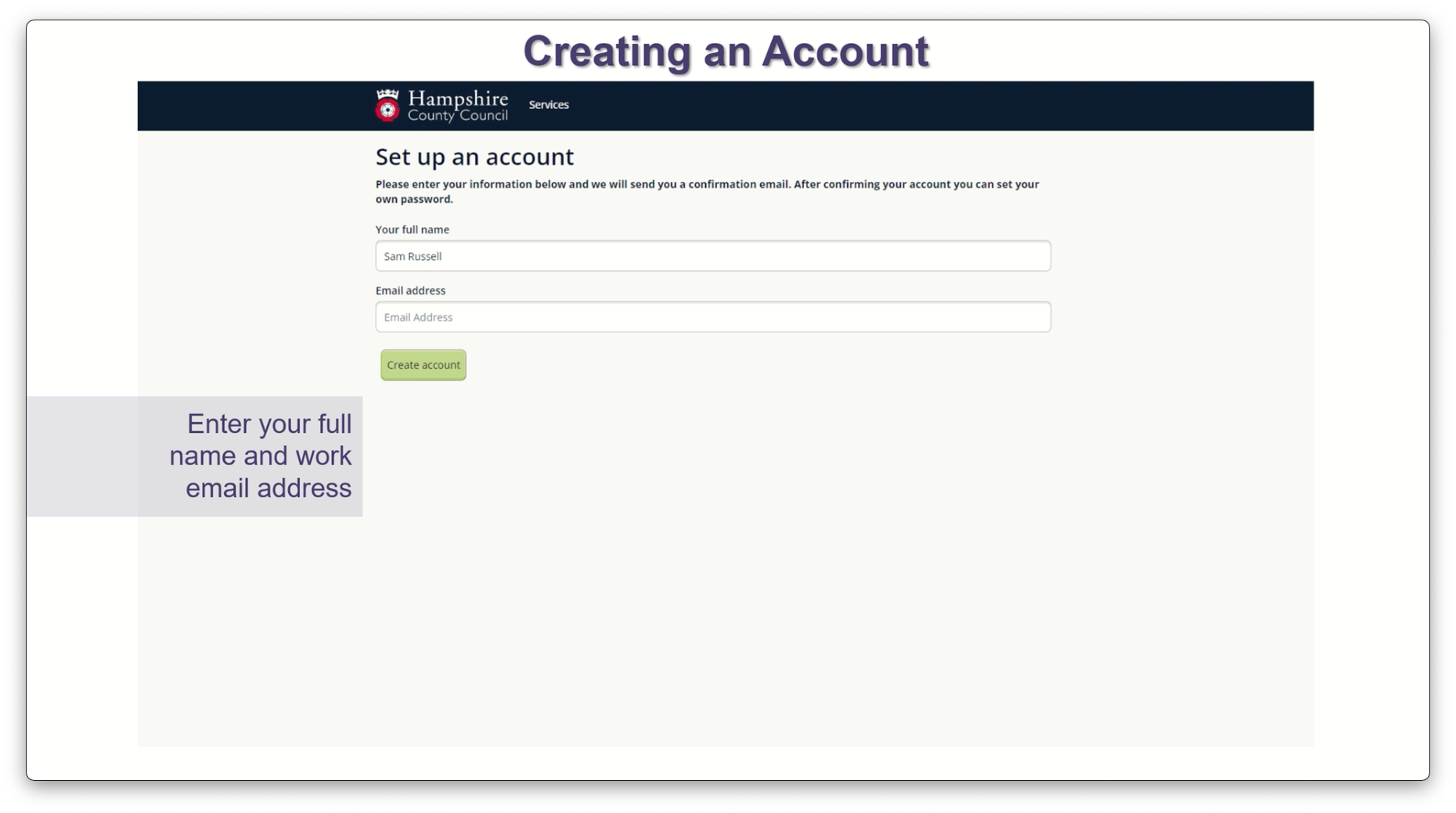Referrals can only be made using the Secure Welfare Referral Portal
You will be asked to create an account from which you will be able to complete a referral form. Guidance videos are available here and will walk you through how to:
- Create a portal account (including use of Google Authenticator)
- Log onto the portal once an account has been created
- Open a referral you have started and download a copy
- Submit a fortnightly update

If you are familiar with the Secure Welfare Referral Process please make a referral on the Secure Welfare Referral Portal:
To support the introduction of the new online referral portal, the SWCU has produced a trouble shooting guide:
Below you will find comprehensive guidance and instructions to help you easily make a referral.
Meeting the criteria for Secure Accommodation
Secure accommodation welfare placements are available for young people that meet the criteria set out in Section 25 of the 1989 Children’s Act for placements in England, or in section 119 of the Social Services and Well-being Act 2014 for placements in Wales. These Acts stipulate that a child being looked after by the local authority may not be placed and if placed, may not be kept in secure accommodation unless it appears:
- That he/she has a history of absconding and is likely to abscond from anything other than secure accommodation; and
- If he/she absconds he/she is likely to suffer significant harm (Section 25(1)(a) / Section 119(1)(a)); or
- If he/she is kept in anything other than secure accommodation he/she is likely to injure him/herself or other persons (Section 25 (1)(b) / Section 119(1)(b)).
If the criteria are satisfied, there is a mandatory duty on the Court to make the order. Re: M (Secure Accommodation Order) (CA) (1995) 1 FLR. 418
When making an application to court if at the time you are unsure if the placement will be in Wales or England, you should fill in the application form so that it is expressed in the alternative so that the application is made either for a Section 119 order or a Section 25 order and then you can tell the judge on the day of the hearing where the placement will be and therefore what sort of order you are asking the court to make.
If the court made a Section 119 order for Wales but then the child needed to be moved to England it would require an application back to the court to get a section 25 order to authorise the placement in England, and vice versa for Welsh placements.
Referrals for Children in provisions not registered with Ofsted
If you refer a child to the SWCU, who is not currently placed at a children’s home registered with Ofsted, or registered with both Ofsted and CQC, it is highly likely that the child will be receiving care and accommodation. Therefore, the setting will be an unregistered children’s home. Please download the guidance document using the link below for more information on unregistered placements.
Referrals for children under the age of 13
To make a secure welfare referral for a child under the age of 13, approval from the Secretary of State (local authorities in England) or the Welsh Ministers (local authorities in Wales) is required. For children under 13 please download and follow the relevant approval process below.
The process can be worked in parallel to the SWCU referral process. Please indicate where prompted on the SWCU referral form that the placement is for a child under 13. Complete the SWCU referral form and provide the supporting documentation via the SWCU portal.
The Department for Education have published guidance for English local authorities seeking approval to place children under the age of 13 in secure care.
Emergency Cases: 72 Hour Rule
For emergency cases, the Assistant Director may apply the 72 hour rule and authorise in writing the holding of a young person for up to 72 hours.
Please indicate that an emergency 72 hour placement is required on the SCH Referral Form.
The Authorisation letter template below should then be completed, on the letterhead of the referring authority, and issued to the manager of the home identified with the SWCU. Assistant Director approval for a 72 hour placement does not guarantee a placement offer. This decision remains with the registered managers of the secure childrens homes.
Completed SCH Referral Forms and the supporting documentation for an Emergency 72 hour placement should be securely emailed to the SWCU. The SWCU can also be contacted on 01962 846432 for more information on secure welfare placements.
Making a Referral
Referrals are made using the Secure Welfare Referral Portal. You will be asked to create an account from which you will be able to complete a referral form.
To make referrals for young people that meet the Section 25 / Section 119 criteria please click the button below to access the SWCU referral portal. contacts from your local authority will be required and the SWCU will screen your referral to ensure all the relevant details have been provided. Once your referral is fully completed it will be made available to the secure childrens homes for consideration. If the young person is aged between 13 and 17 this is the only referral paperwork required.
Completed SCH Referral Forms should be submitted through the portal. Referrals will only be accepted through the portal. The SWCU can be contacted on 01962 846432 or via securewelfare@hants.gov.uk for more information on secure welfare placements.
The SWCU’s working hours are Monday to Friday 08.30 – 17:00. If you require assistance outside of these hours, please contact the individual Homes directly using the contact details found on the Our Homes page. A secure welfare referral form will still be required to be completed via the portal.
Here are some example mock referrals to help understand how a referral is completed.

